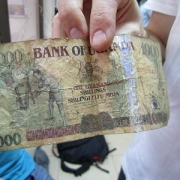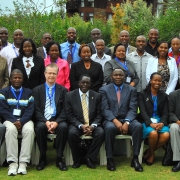MTN rolls-out rural mobile broadband project
South Africa’s second largest mobile operator, MTN plans to roll out over 1 000 Universal Mobile Telecommunications Systems (UMTS) base stations in rural areas for the next two years.
During an interview session with ITNewsAfrica today, MTN Chief Technology Officer Kanagaratnam Lambotharan says his company’s vision was to provide mobile broadband connectivity throughout South Africa, citing the huge investments in solar powered radio transmission and Base Transceiver Station (BTS) sites.
MTN plans to bring the much-needed broadband capacity to millions of its subscribers in the country and its operations across the continent and the Middle East. The company has made significant broadband investments in the West Africa Cable System (WACS), and in East Africa Cable System (EASSy) undersea cables.
“These investments in undersea cables have already decreased the cost of Internet connectivity, further giving consumers an enhanced customer experience,” says Lambotharan.
“Broadband access will need to come from other access networks, such as mobile. For many consumers, their first internet experience is via a mobile handset, and MTN is working tirelessly to ensure that every customer has access to the World Wide Web,” says Lambotharan.
He says many studies have proved that access to broadband helped to contribute to socio-economic development and lead to a significant increase in a country’s GDP.
Lambotharan said Africa was still lagging behind in terms of broadband penetration, but was quick to point out that MTN was confident that when the undersea cables and fibre optic cables were operational they would spur socio-economic development and help the continent address the challenges of under development.
“The key limitations to rolling out infrastructure however remain the availability of high capacity transmission and in some cases grid power, which requires additional investment from telecoms players such as MTN.”
“As a company with operations in emerging markets, the availability of reliable energy sources in rolling and maintaining a reliable network is crucial.
“The unavailability of reliable energy supplies makes network rollout very expensive, thus dissuading potential investors from investing,” says Lambotharan.
Lambotharan says the cost of purchasing hardware such as computers and modems was the key factor that derailed universal broadband access.
“It is with this in mind that MTN launched Internet TV. The purpose-built keyboard provides customers with Internet access without the need to purchase computer hardware,” says Lambotharan.
Savious Kwinika
![]()










































